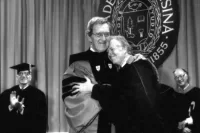Bates was recently honored as one of 48 colleges with the highest student voting rate in the 2020 presidential election.
With 84.9 percent of eligible students heading to the polls in 2020, Bates garnered a platinum seal from the ALL In Campus Democracy Challenge, a nonpartisan national awards program that recognizes colleges and universities for their commitment to increasing student voting and civic engagement.
Forty-eight colleges earned the platinum designation for achieving voting rates over 80 percent.
“The cultivation of ‘informed civic action’ is a pillar of our institutional mission,” said Darby Ray, director of the Harward Center for Community Partnerships, which oversees the nonpartisan voter mobilization effort, known as Bates Votes. “Voting, including voter education, registration, and mobilization, is a crucial form of civic action and the very foundation of a thriving democracy.”
The 2020 edition of Bates Votes was coordinated by students Amalia Herren-Lage ’22 of Shoreham, Vt., and Ashka Jhaveri ’22 of Chappaqua, N.Y., with expert advice and guidance from Peggy Rotundo, who retired in 2021 as the Harward Center’s director of strategic and policy initiatives.
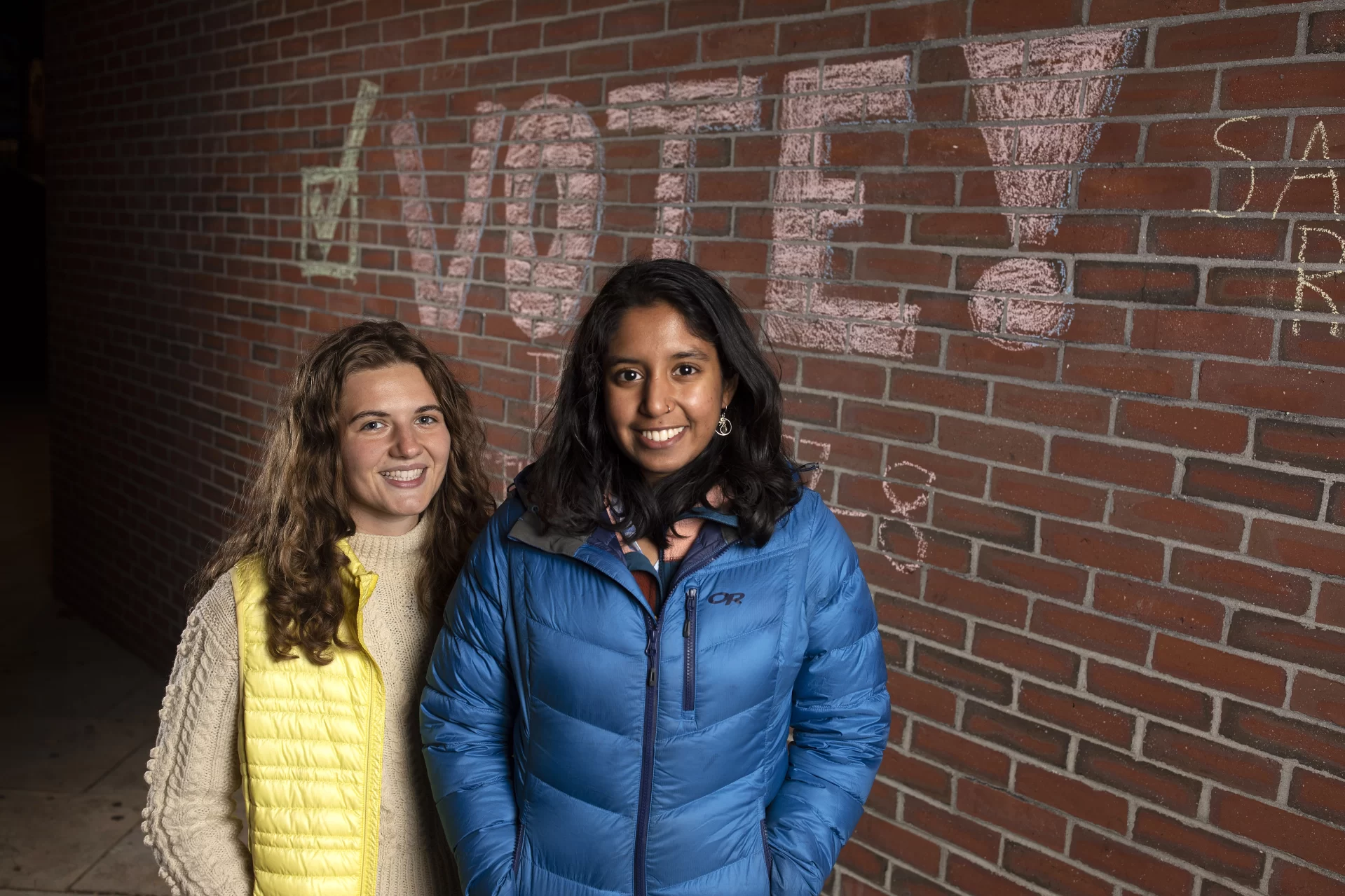
Rotundo was the ideal role model and mentor, said Herren-Lage and Jhaveri.
“Her confidence, experience, and incredibly kind guidance created a beautiful working environment for us to experiment with ideas and execute our goals in a professional and enthusiastic manner,” said Herren Lage. “That’s something I hope to bring into all my future endeavors.”
Bates Votes is a grass-roots effort that leverages peer-to-peer engagement and the willingness of many campus partners among students, faculty, and staff. “It’s an all-college effort — all hands on deck,” says Ray.
Vote Captains, students who are trained by Harward Center staff on how to register and educate voters, engage students in a massive outreach campaign through clubs, organizations, athletic teams, residence halls, classes, and friends groups. Plus chalking — lots of chalking — all around campus, exhorting folks to vote.
For Herren-Lage and Jhaveri, who are close friends, the experience with Bates Votes offers a model for purposeful work — “a professional, enthusiastic partnership,” said Herren Lage.
In 2020 as with other elections, Bates Votes and the Harward Center supported a range of voter-education programs, dubbed the Election Connection. Bates faculty members added their expertise and insights, including two roundtables that shared scholarly insights into election results, as well as the video series Democracy QuickBites, featuring insights from Bates people and invited guests, including U.S. Sen. Angus King of Maine.
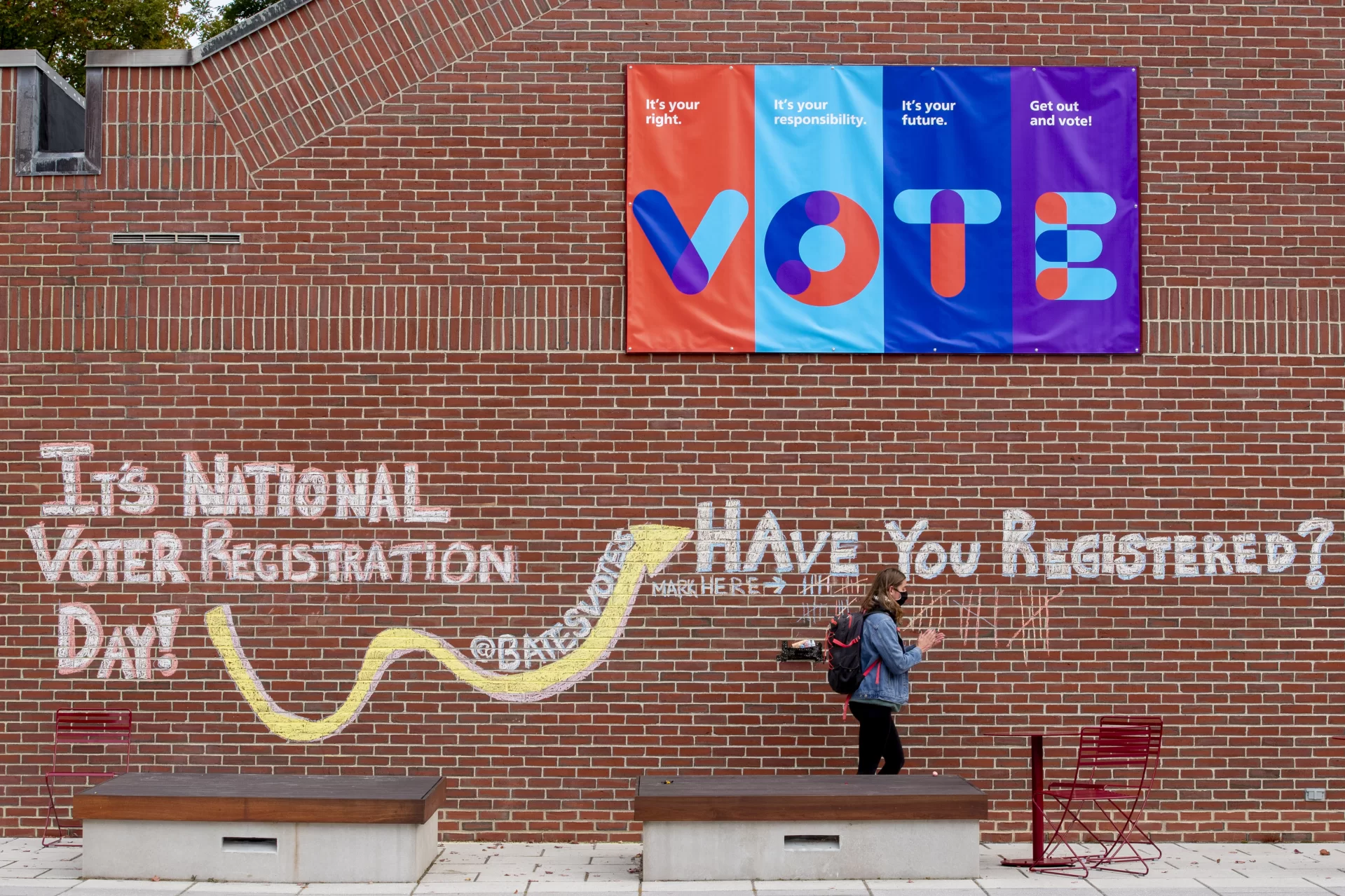
Some 844 two- and four-year U.S. institutions of higher education and more than 9.2 million students are now part of the ALL IN Campus Challenge program, which gathers its voting data from the National Study of Learning, Voting, and Engagement of the Institute for Democracy & Higher Education.
Here are a few 2020 student voting facts from Bates and nationally:
- 66 percent of college students voted in 2020, an all-time high and a 14-point increase from 2016.
- Bates student voting rate of 84.9 percent was 7.3 percentage points higher than 2016.
- 93.7 percent of students registered to vote, 2.2 percentage points higher than 2016.
- Due to the pandemic, only 117 students voted in person in 2020. In 2016, the number was nearly 600. (Students cast in-person votes at the Lewiston Armory.)
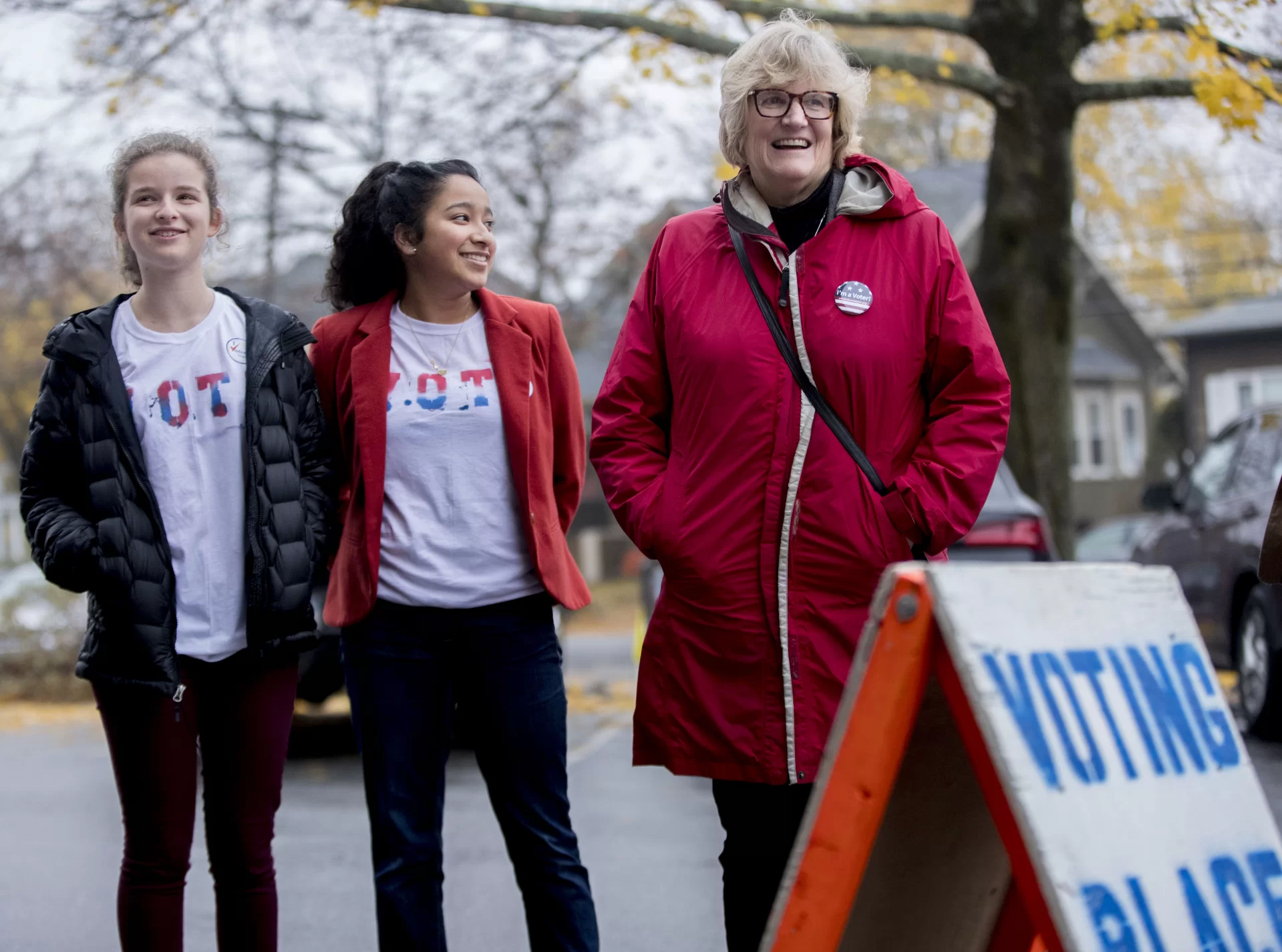
The Bates voting rate of 85 percent means that 1,459 of 1,718 eligible Bates students voted.
On Election Day, Herren-Lage, Jhaveri, and their fellow Bates Votes volunteers chalked tally marks on the pavers in front of Commons showing the number of students who told them that they’d voted.
“When we went home around 8 o’clock, after the polls closed, we had something like 1,100 marks on the ground,” recalls Herren-Lage. “We were convinced it was a huge overestimation — no way that many people had actually gone out to vote.”
Fast forward to fall 2021. “We learned that closer to 1500 students voted. And that feels amazing.”
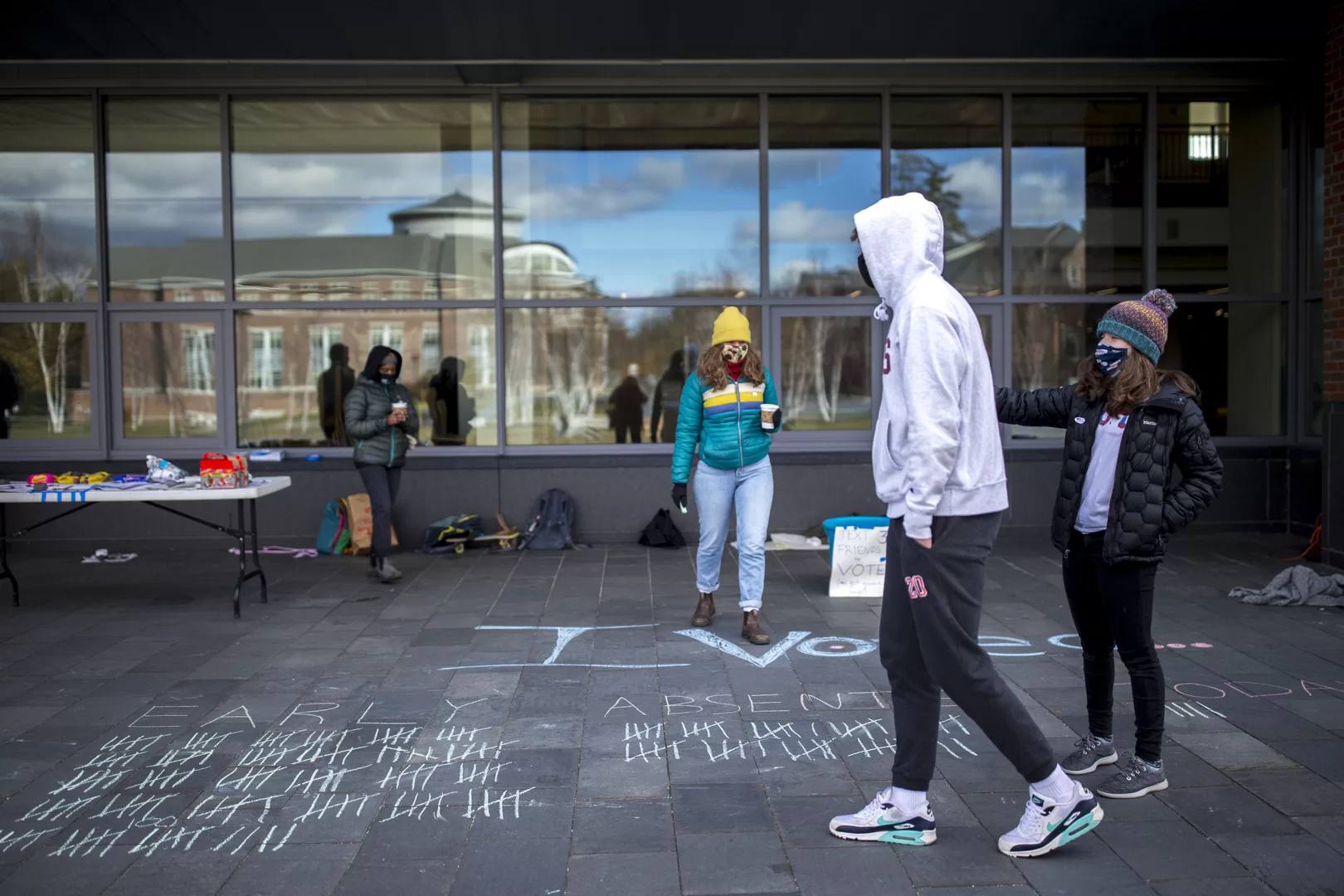
Herren-Lage and Jhaveri emphasize that casting a vote is just one way of effecting change, and not always the most effective. “At Bates, there are so many ways to be involved in social change in our community of Lewiston-Auburn through the Harward Center.”
Still, the right to vote is precious. “There’s a reason so many people have fought for and to protect voting rights. A lot of people find a sense of power in being able to cast a ballot, particularly in a country where citizenship is such a privilege. That sense of power matters, because I think it can be an avenue for hope.”
During a Nov. 9 virtual awards program honoring Maine colleges involved in the ALL In Campus Challenge, Rotundo, former longtime Maine legislator, received a lifetime achievement award.
The event’s featured guest, Maine Secretary of State Shenna Bellows, called Rotundo “a true trailblazer and champion of civic engagement” in Maine.
As she accepted the Maine Campus Voting Legacy Award, Rotundo, who co-founded Bates’ community-engaged learning program with the late Jim Carignan ‘61, didn’t sound like a woman ready to talk about her legacy.
“What an honor to work with you all,” she said. “And boy, this work is more important than ever, right?” The folks on the Zoom call nodded, nearly in unison. “But we’re up to the task. We’re going to keep our democracy strong. We’re going to do what needs to be done.”
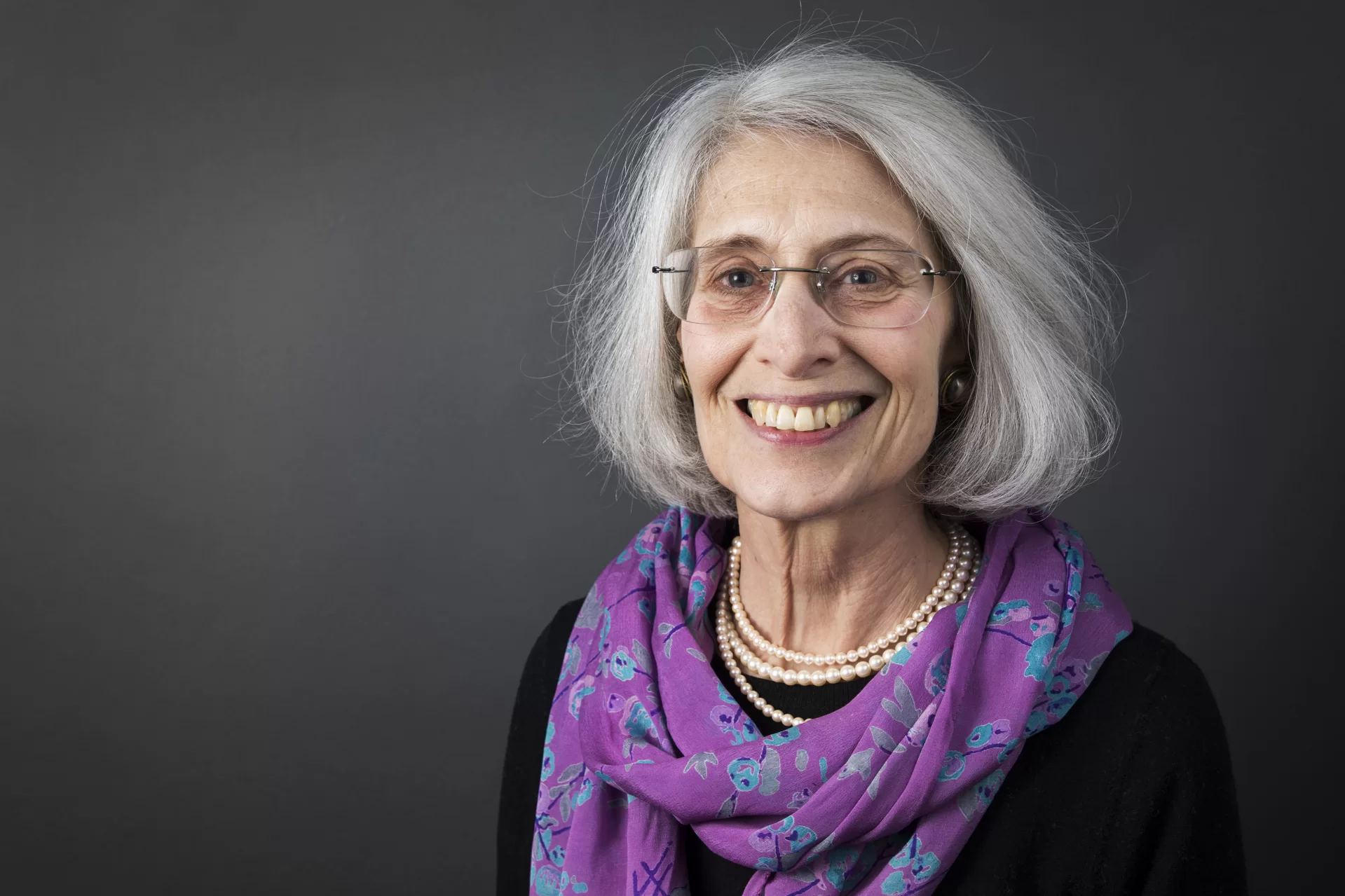
Bellows announced that the Maine Campus Voting Legacy Award will be named for Rotundo going forward. “Peggy is a reliable champion for civil rights, for voting rights, for education, and for student engagement,” she said. “Her commitment to civil rights and voting rights is a true inspiration.”
Her mentees in 2020, Jhaveri and Herren-Lage, couldn’t agree more.
“Learning from such an experienced, wise person was special,” said Herren-Lage. “Peggy always let Ashka and I take the lead on our projects, and really made it possible for us to make our visions a reality. I hope that I’ll be able to emulate her quiet, supportive leadership style.”
The awards event was attended by representatives from Maine colleges that participated in the first biennial Maine Campus Voting Challenge: Bates, Bowdoin, Colby, Saint Joseph’s, College of the Atlantic, Husson University, Kennebec Valley Community College, University of Maine, University of New England, and the University of Southern Maine.
Launched in September 2020, the Maine Campus Voting Challenge is cosponsored by the nonprofit Maine Students Vote and the Office of Maine’s Secretary of State, in partnership with ALL IN Campus Challenge.

